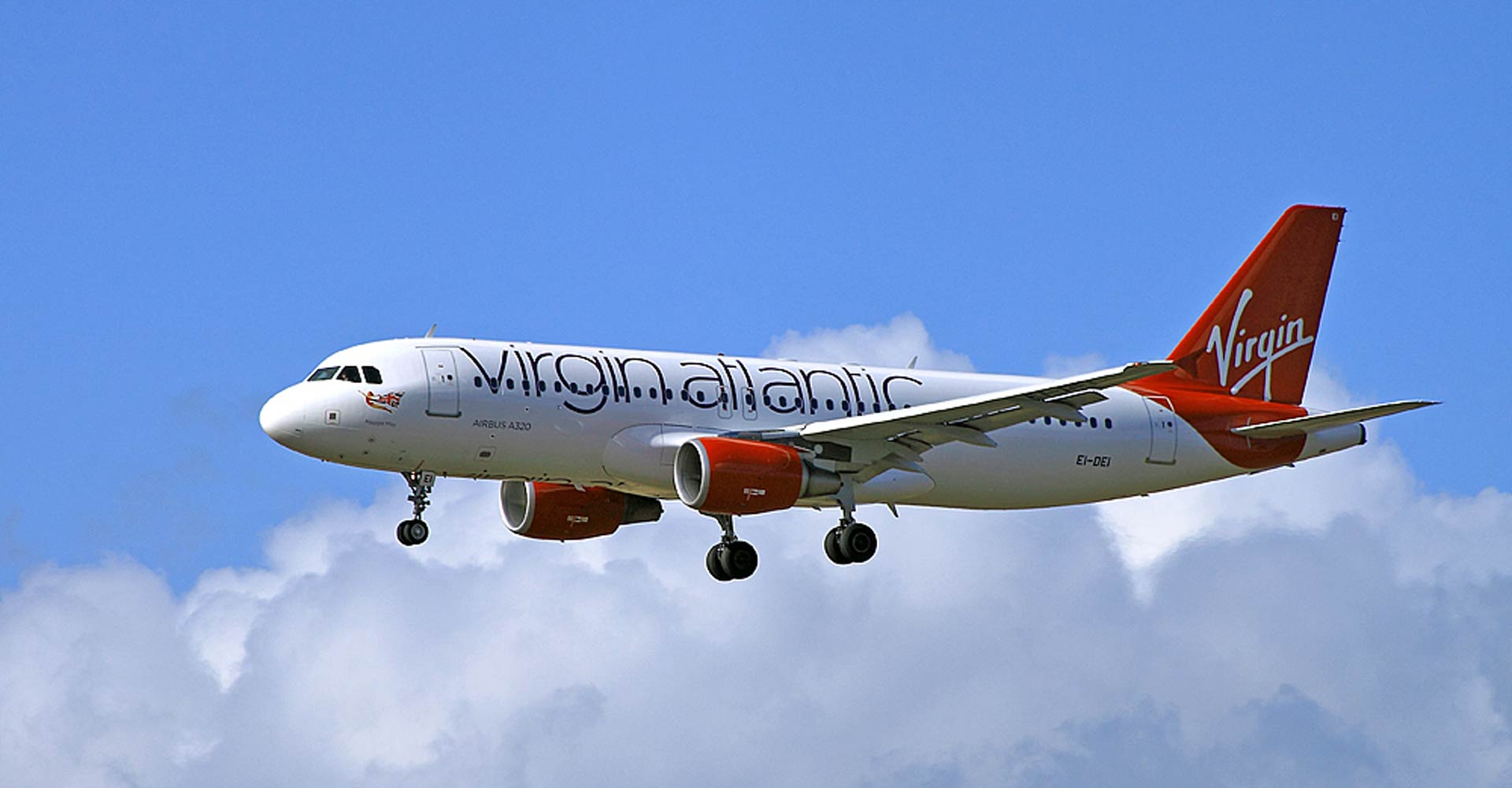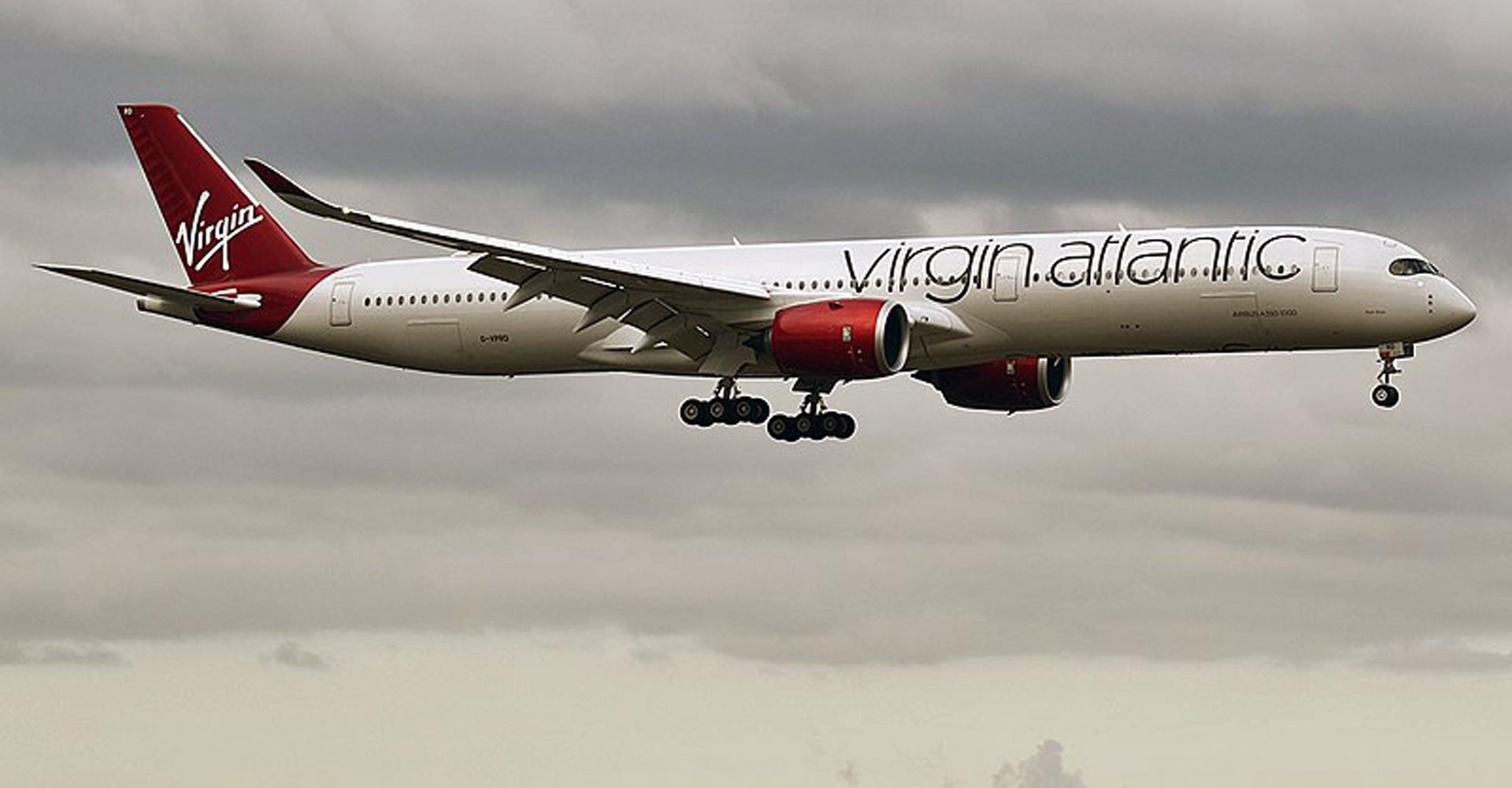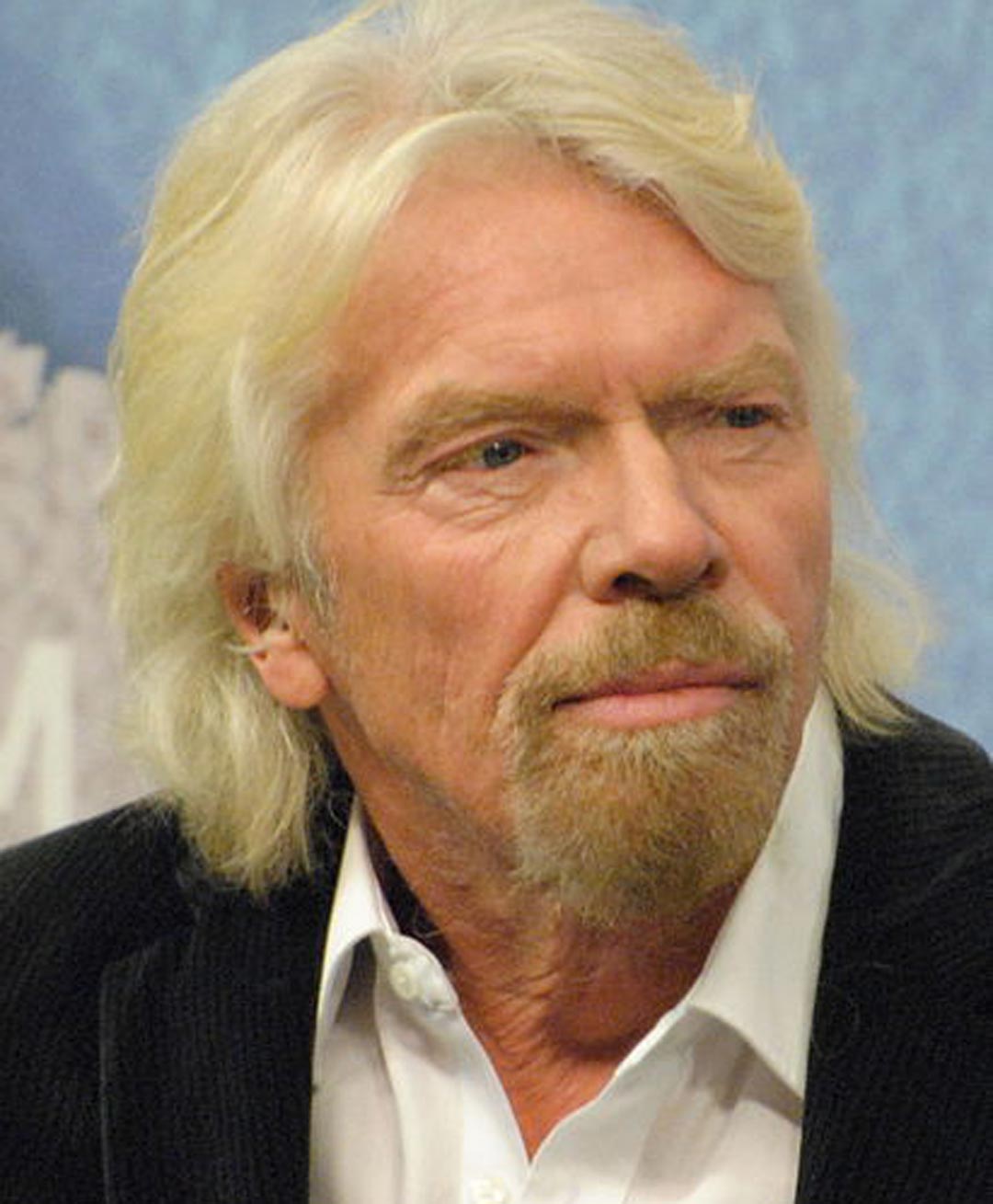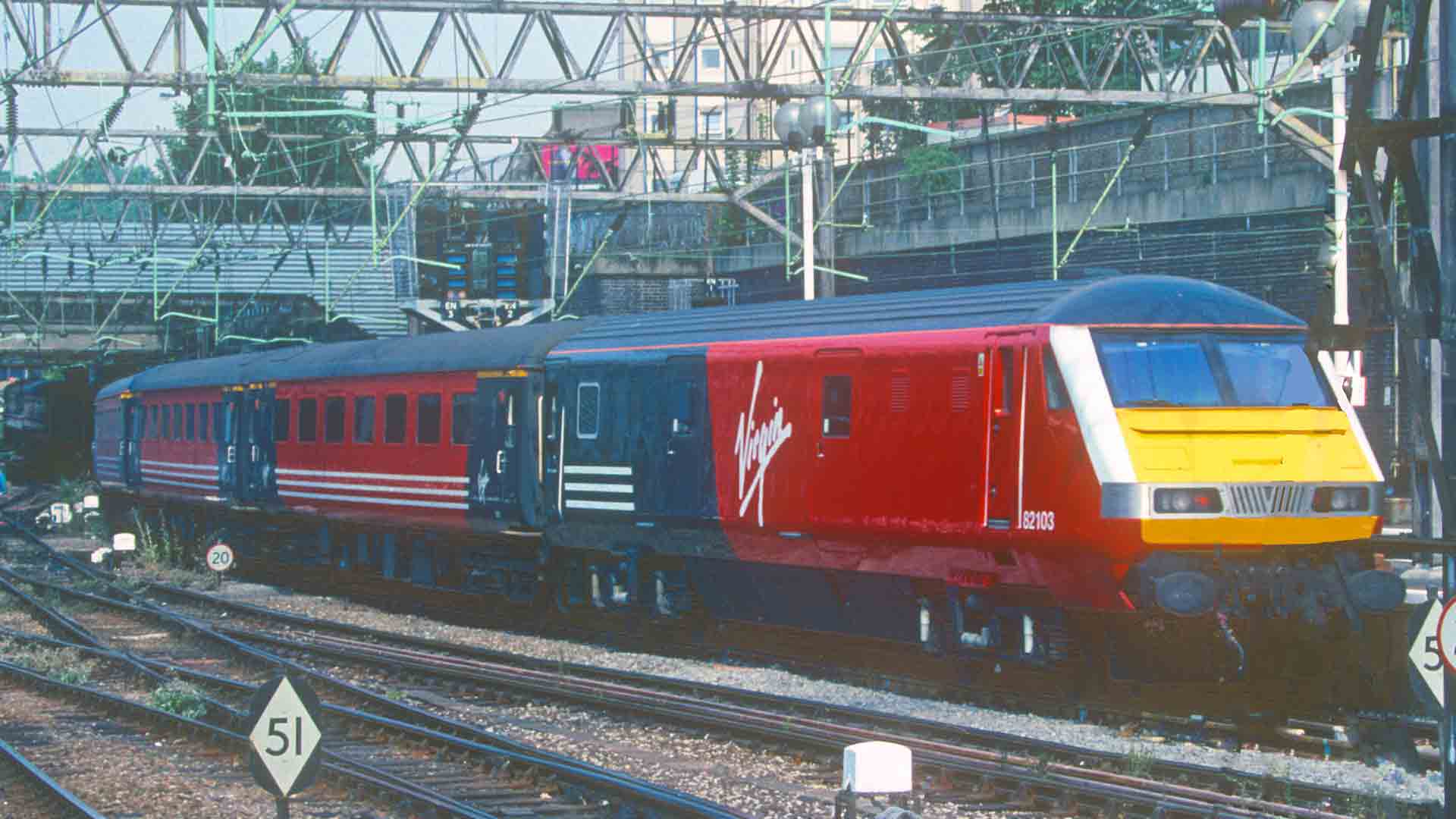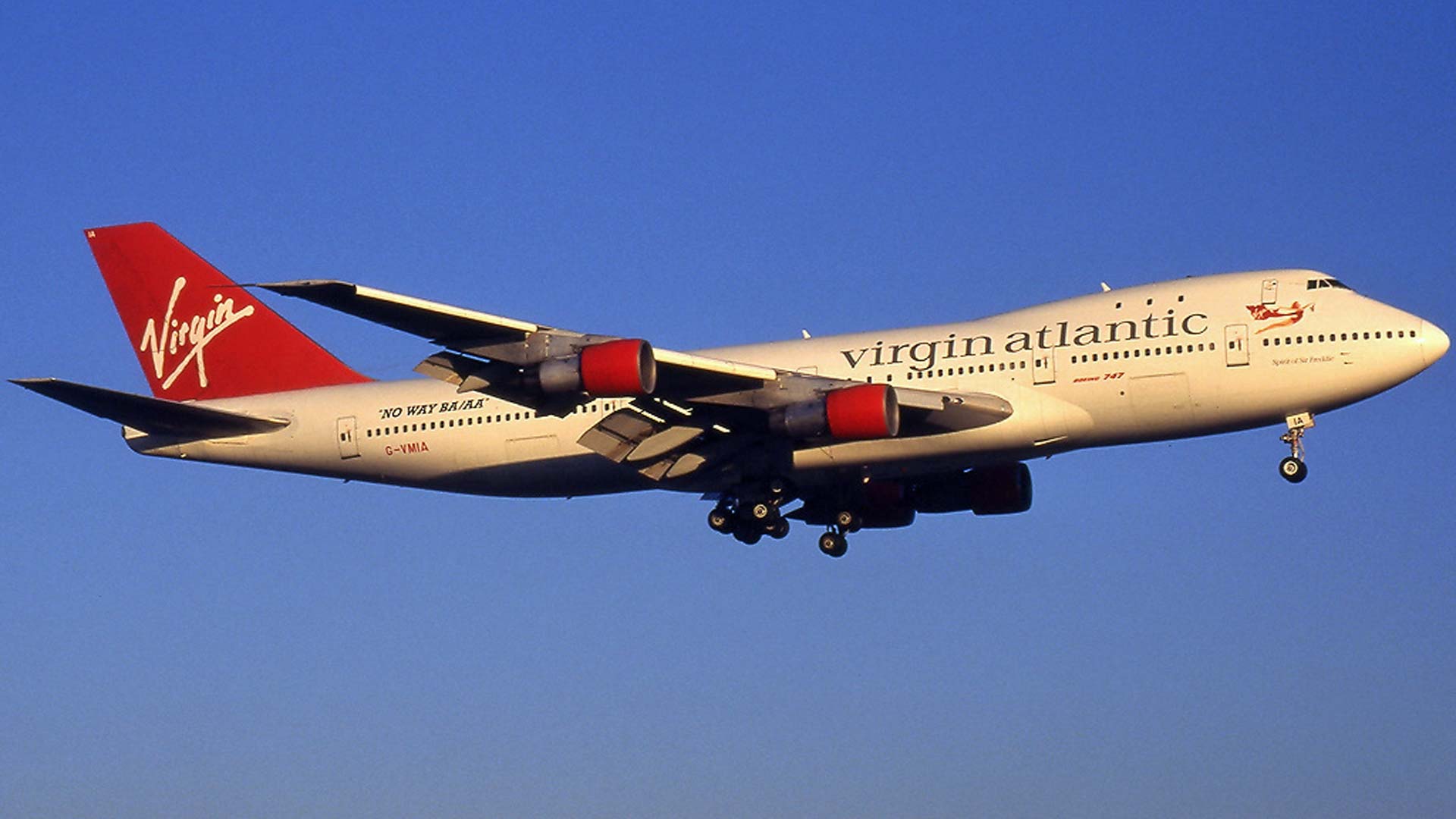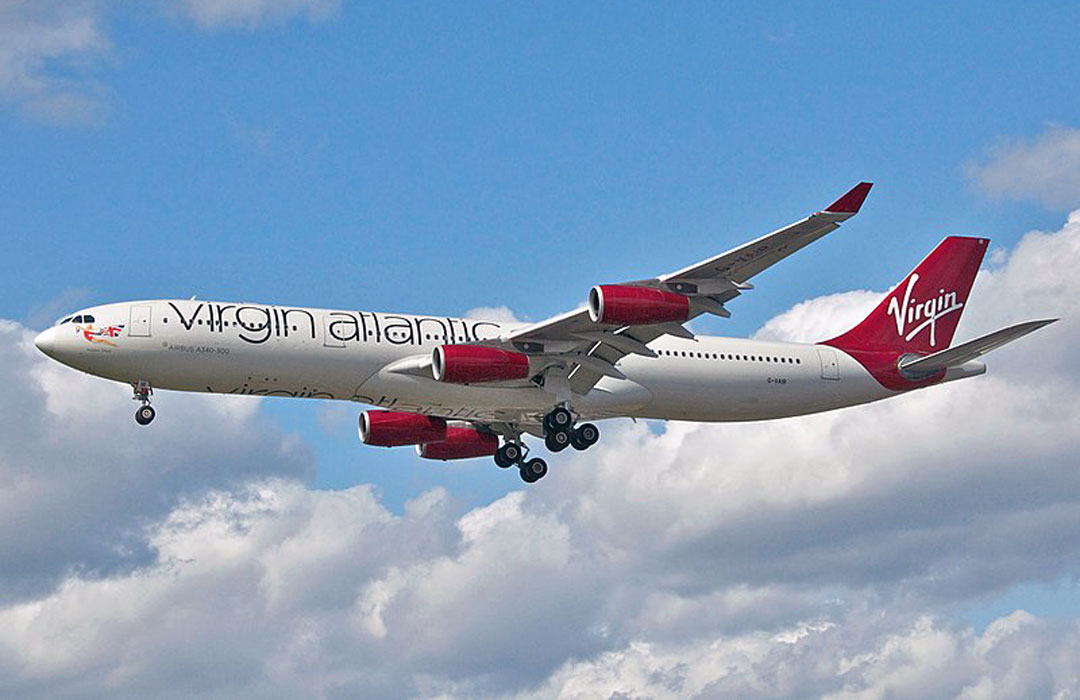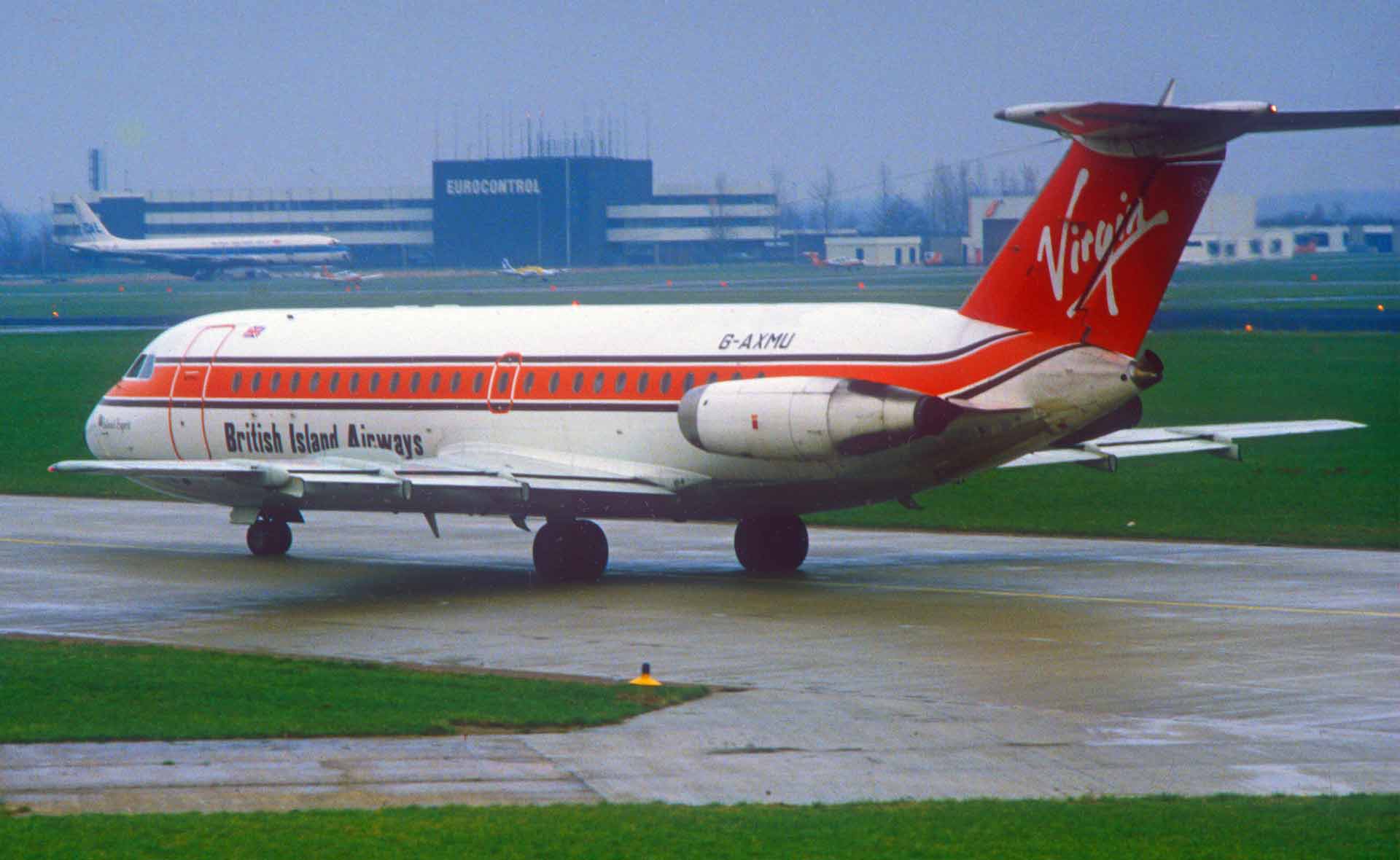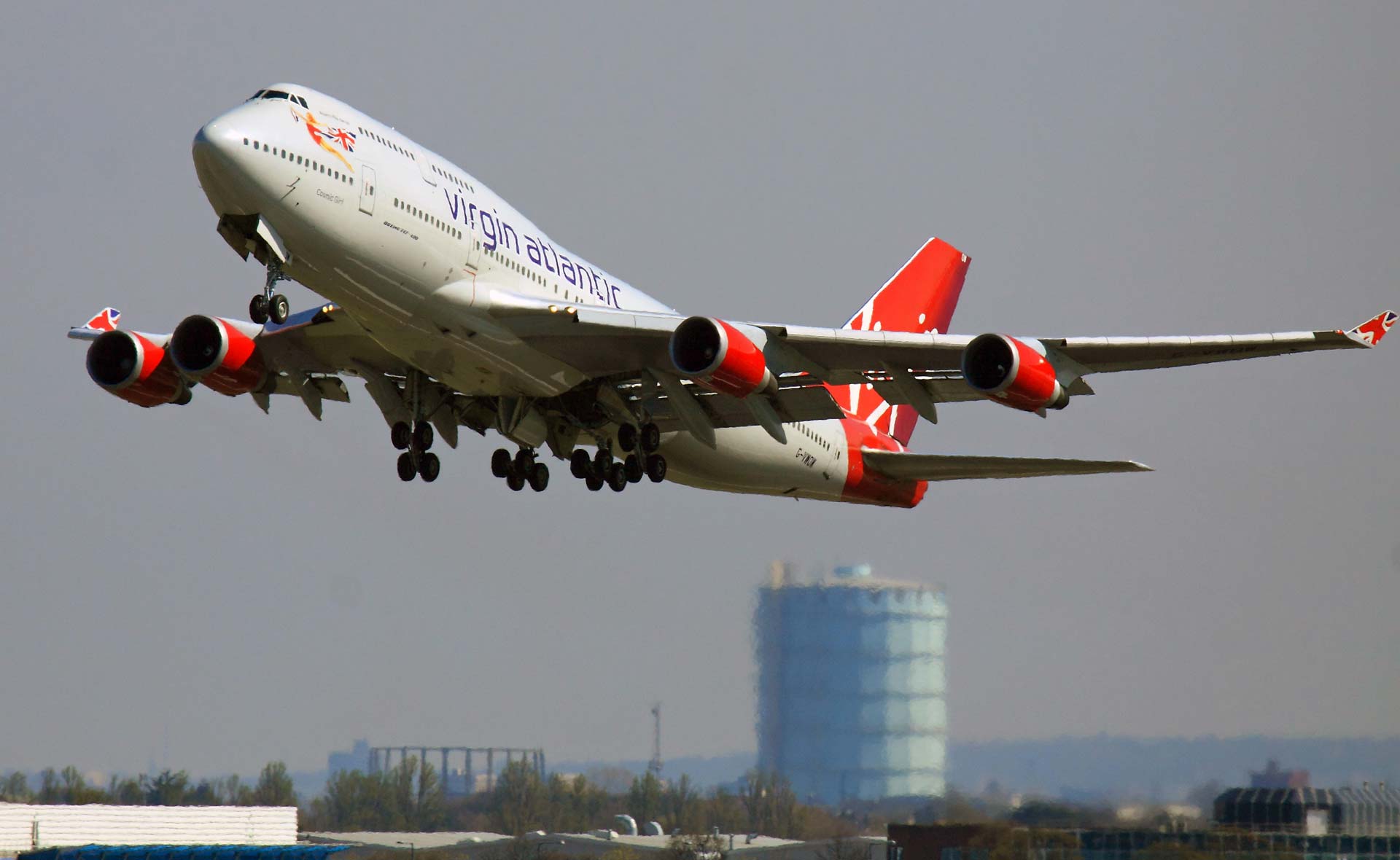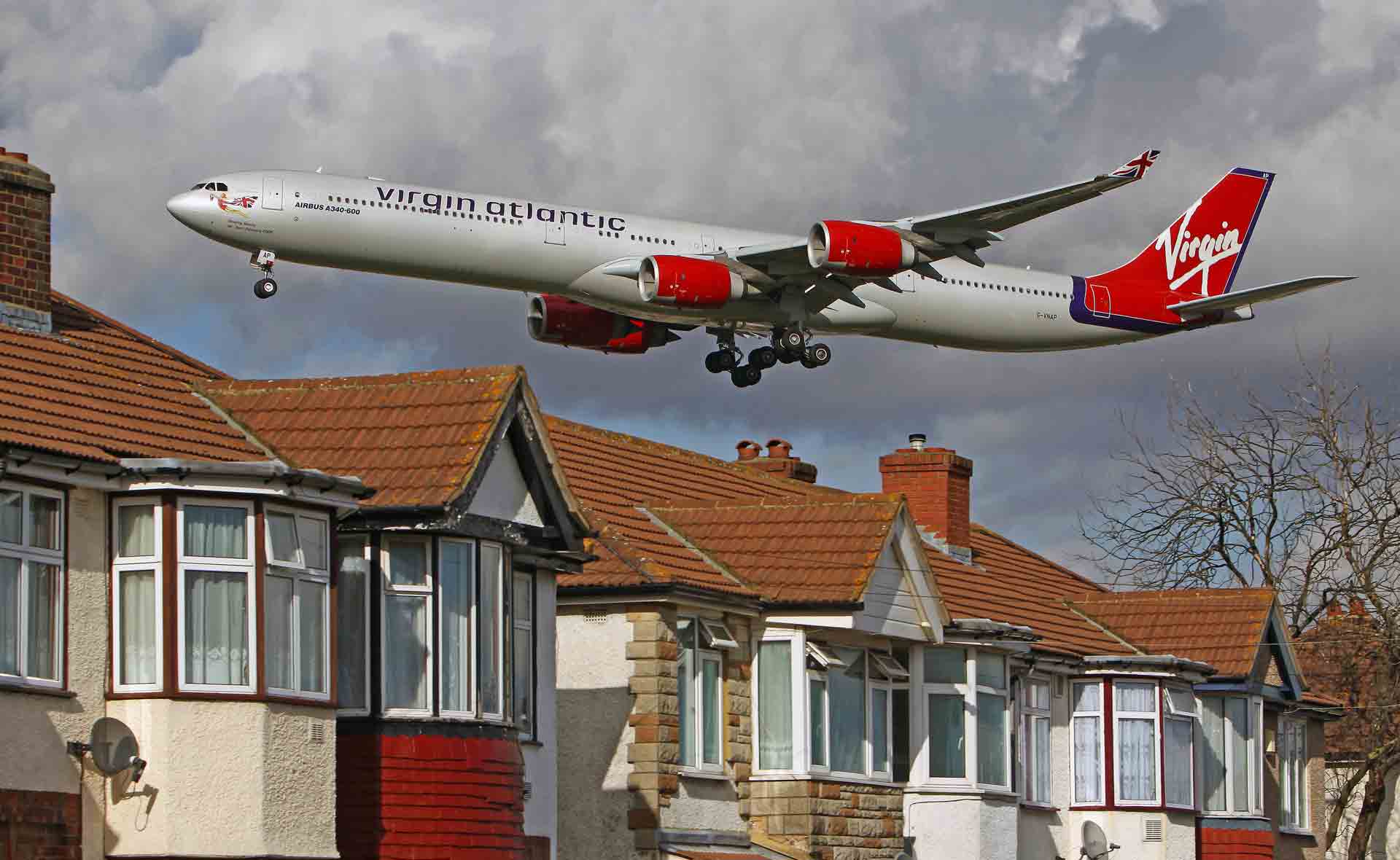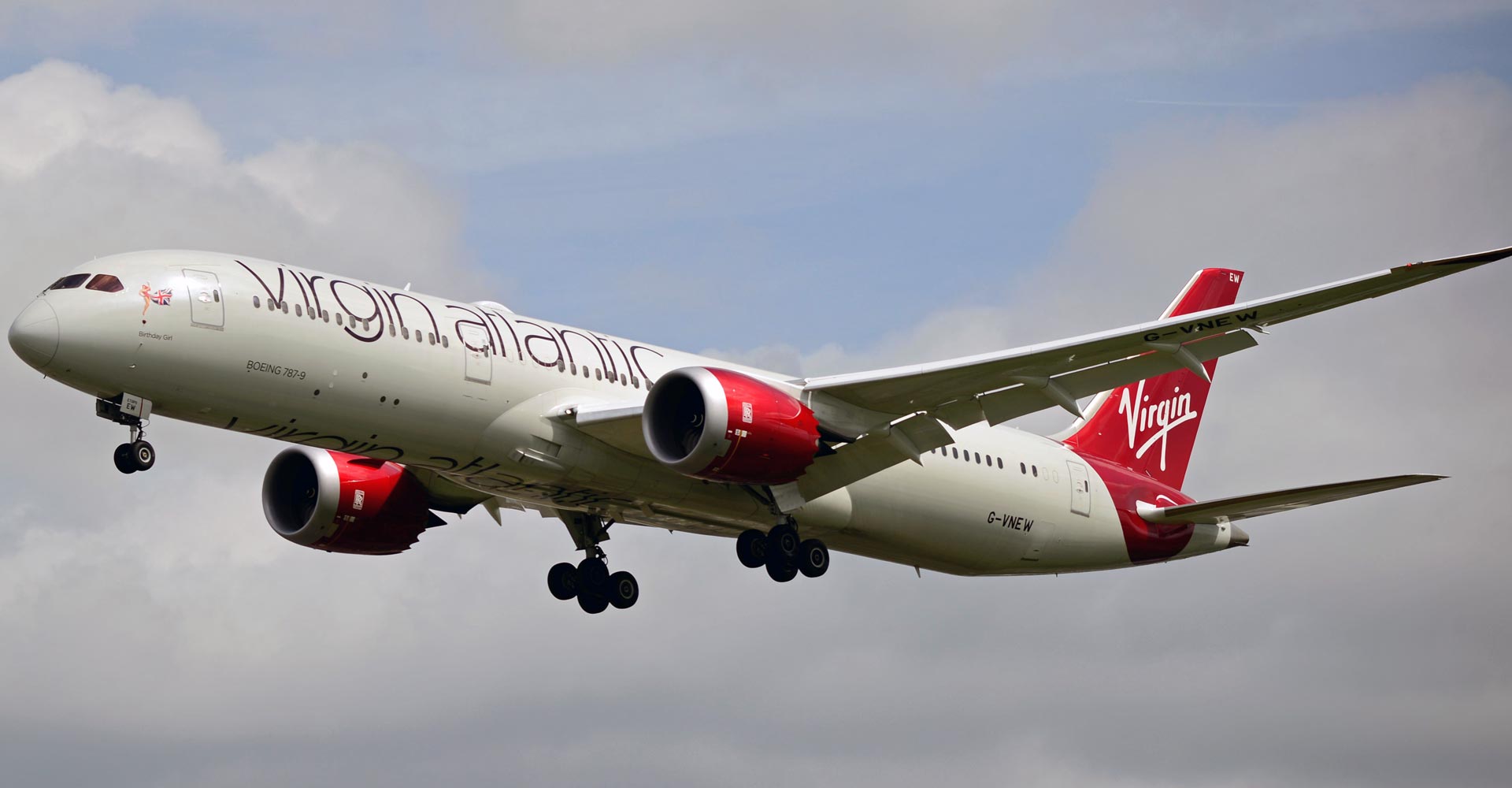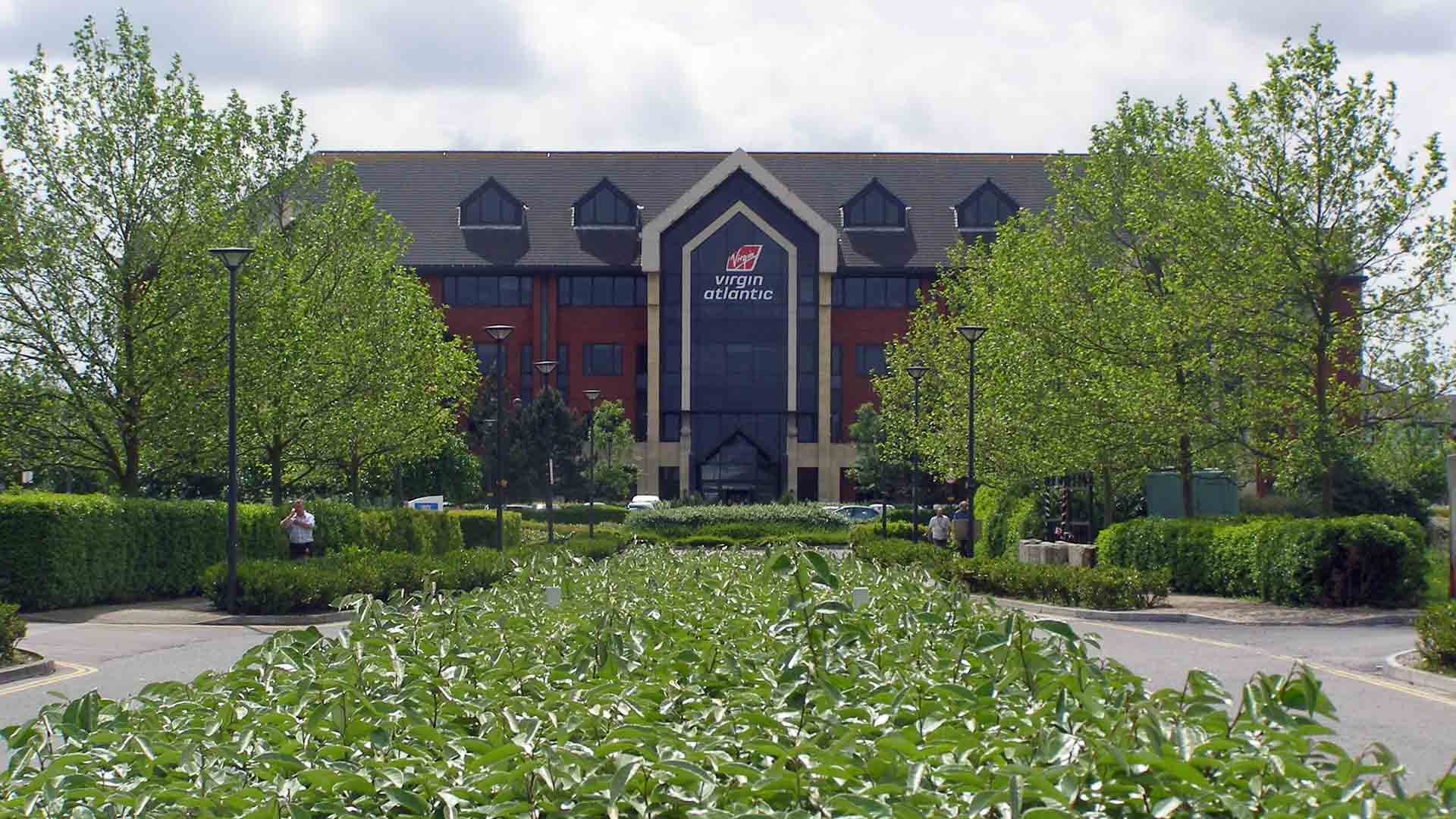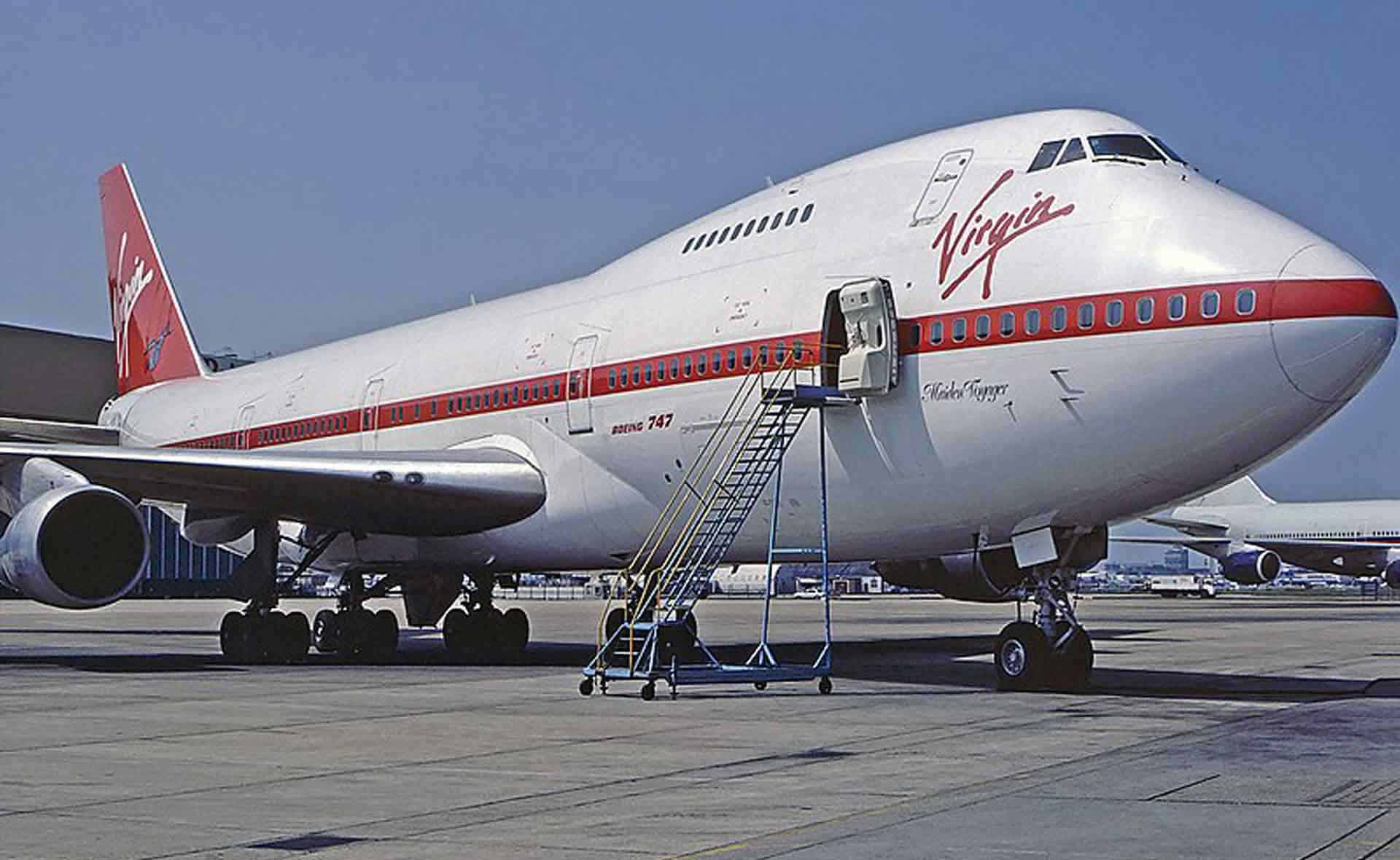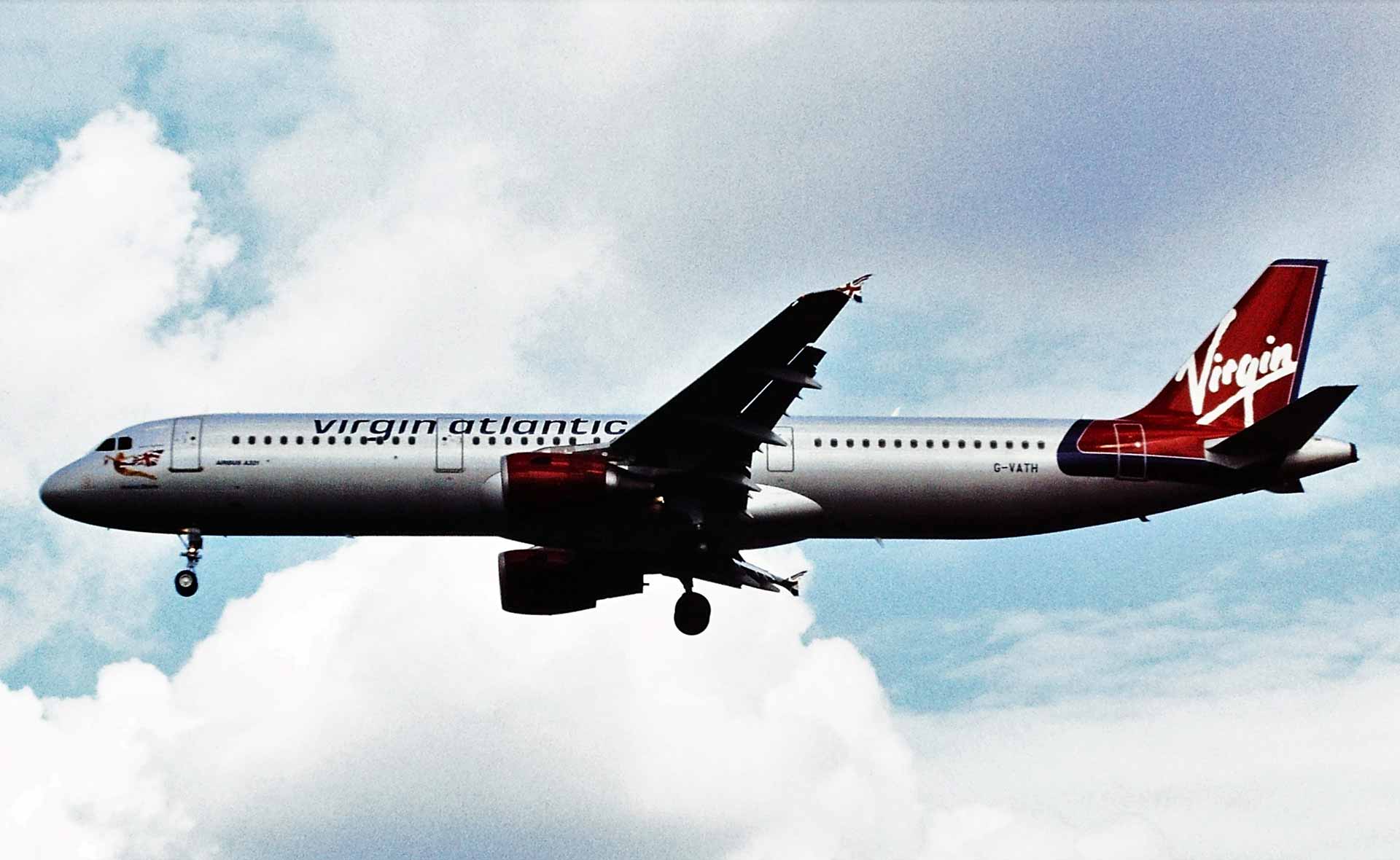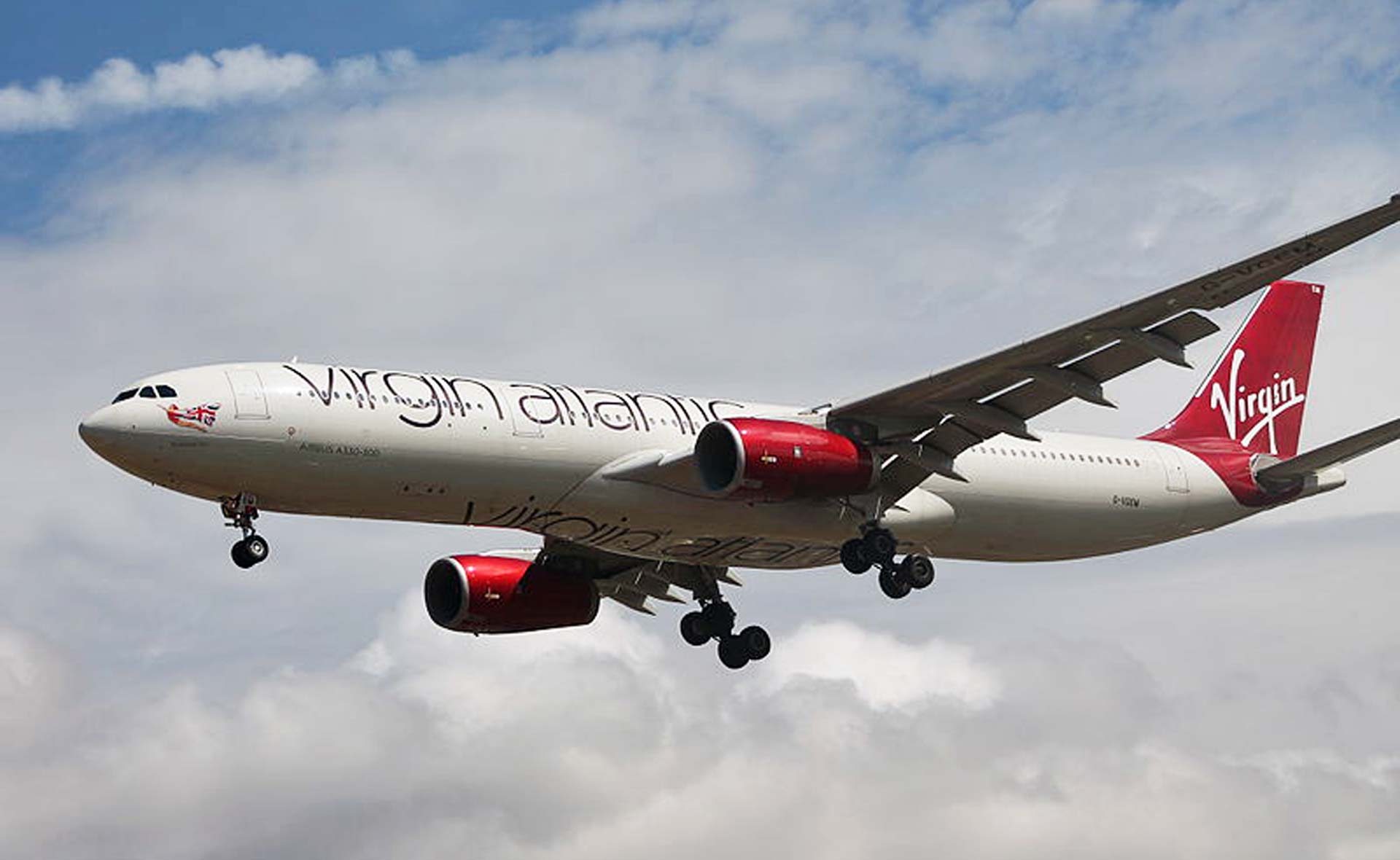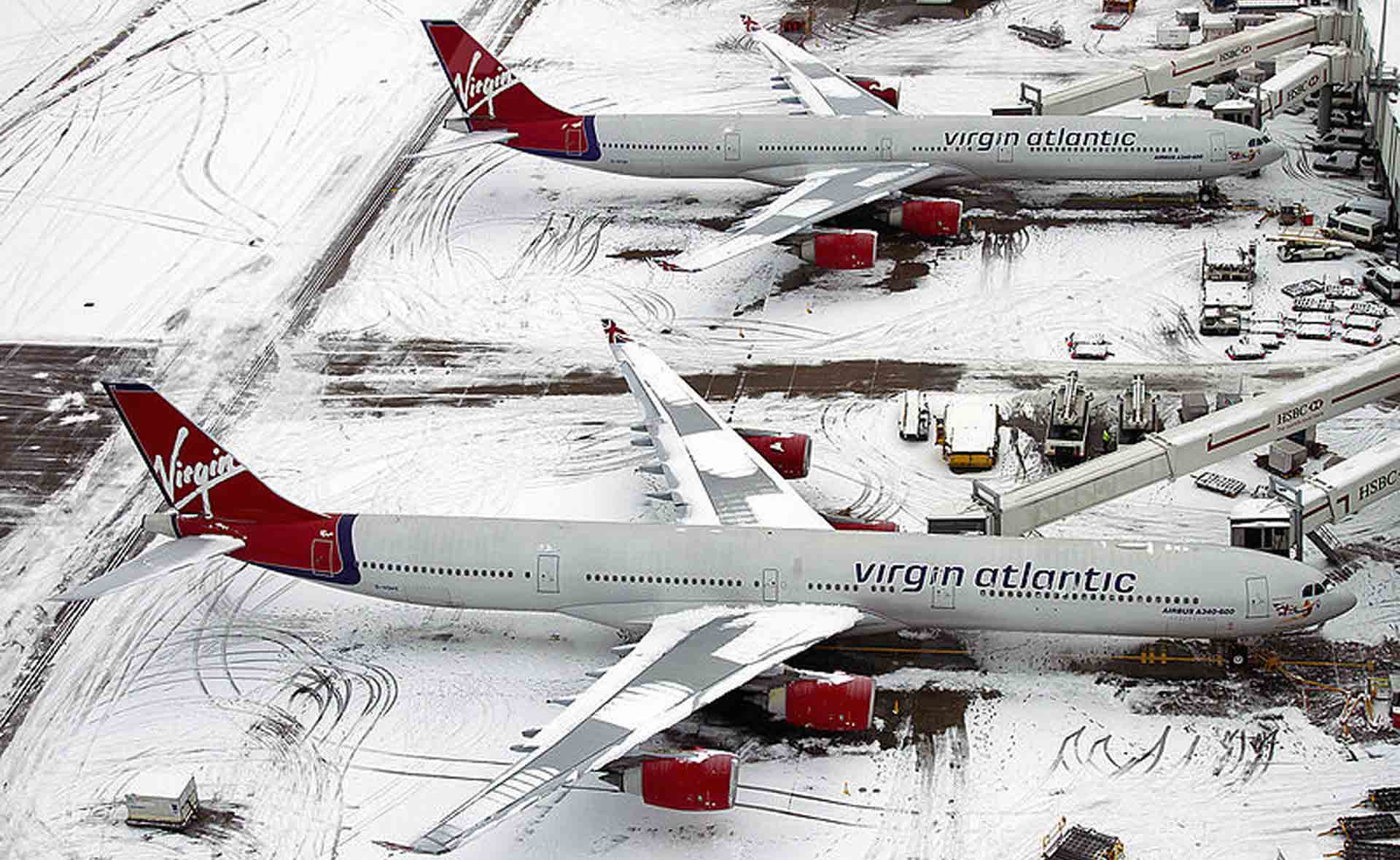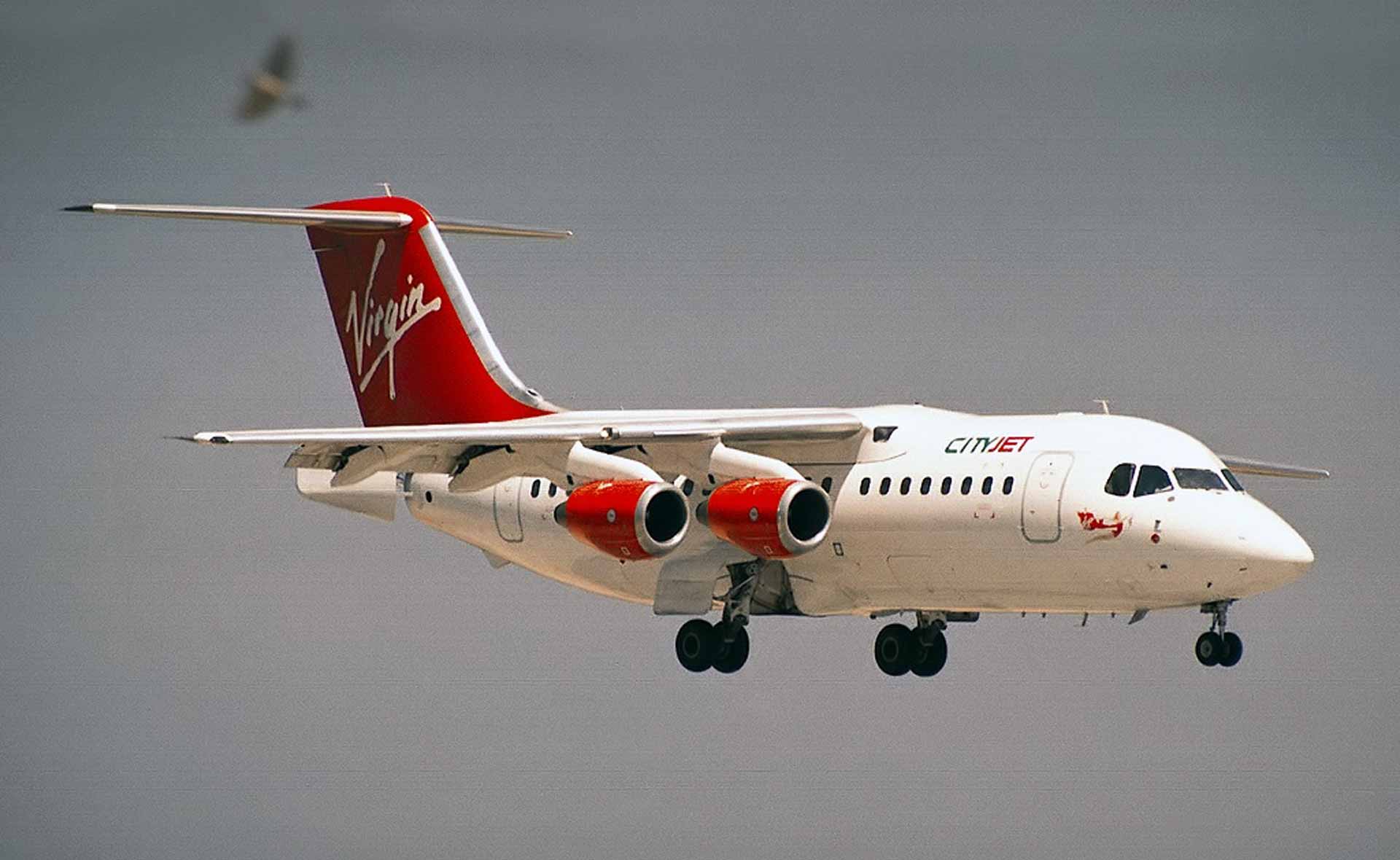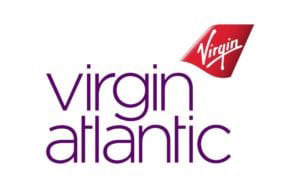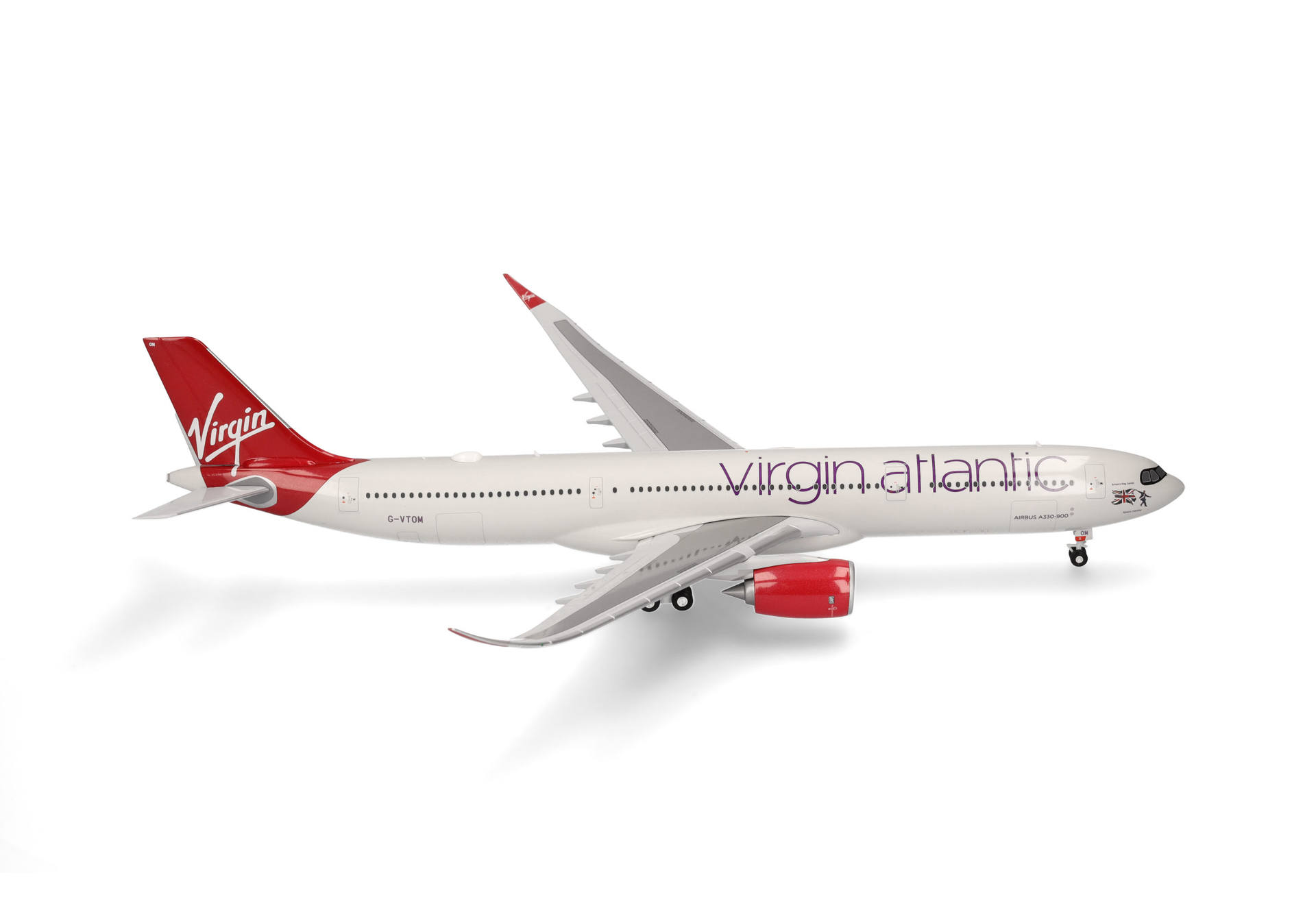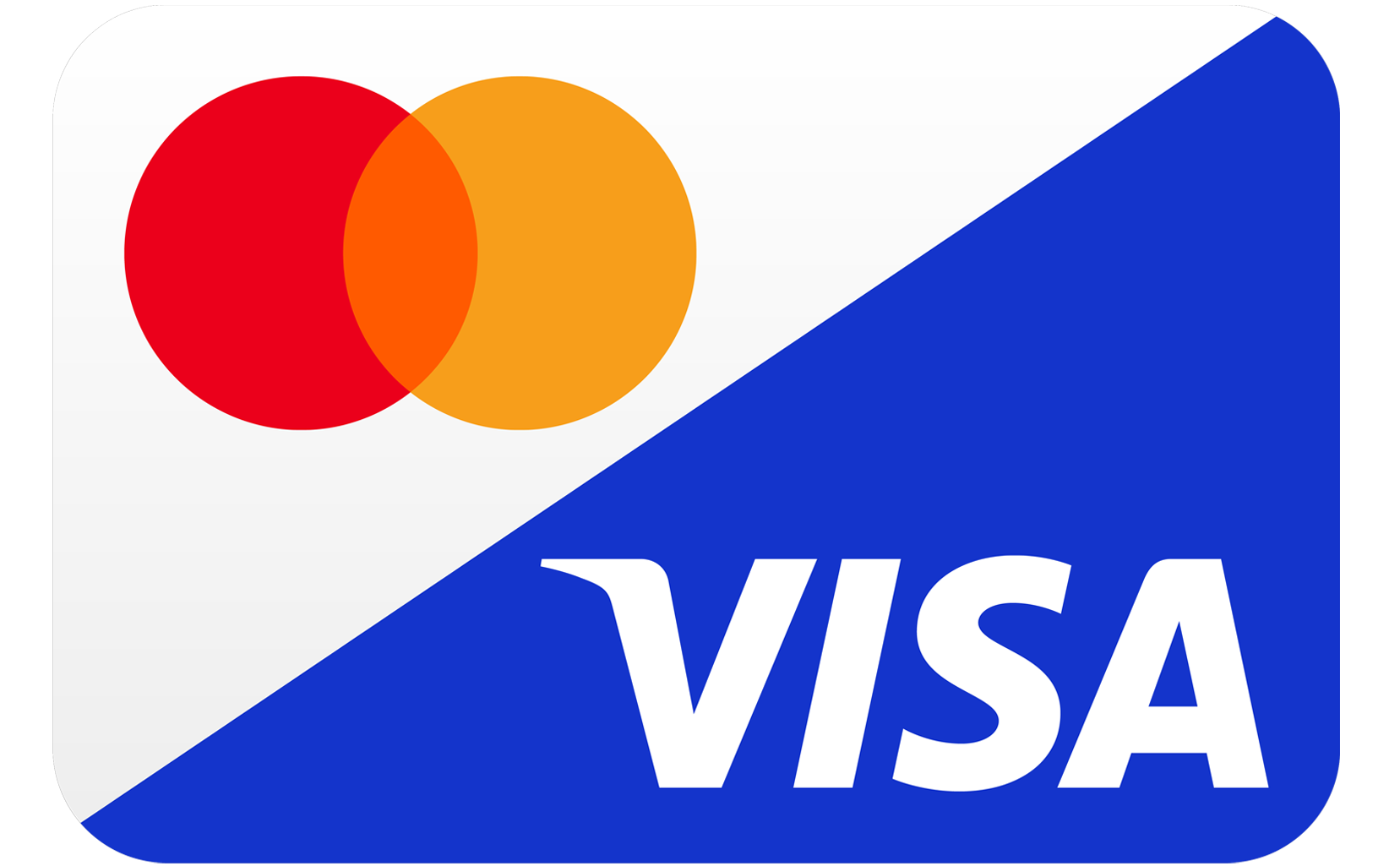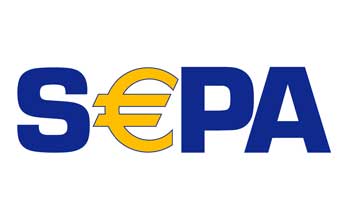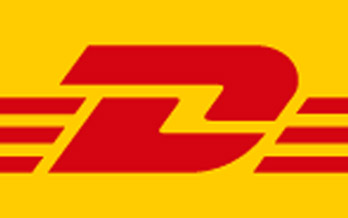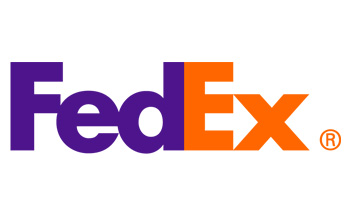The Renaissance Man’s Airline
There have always been a few outstanding and charismatic personalities who have had a lasting impact on their profession. This applies in aviation too. In the past it was managers such as the founder of Pan Am, Juan Trippe, or, in a similar role, Albert Plesman at KLM, and Freiherr von Gablenz from Lufthansa, but modern air transport definitely has its icons too. These include figures such as Freddie Laker, who introduced the first no-frills long-haul flights with Laker Airways, David Neeleman, founder and CEO of Brazil's Azul, and Richard Branson, whose global Virgin Group includes the airline Virgin Atlantic Airways and the aerospace company Virgin Galactic. Indeed, he has become one of the UK’s richest individuals, and is said to be worth more than four billion US dollars.
Ten Airbus A350-1000s now comprise the flagships of Virgin Atlantic Airways, which only flies long-haul routes - from London, Manchester and Edinburgh. Photo: Anna Zvereva_CC
Sir Richard Branson, who was knighted by Queen Elizabeth II in 1999 for his entrepreneurial achievements, is a popular example of the rags-to-riches story of an unremarkable school pupil who becomes a multi-billionaire. Born on July 18, 1950 in London into a wealthy academic family, his school career was severely affected by his dyslexia, which was still an unrecognized condition at the time. In fact, he dropped out of school at the age of 16 without graduating. He later said that he had never considered his dyslexia a disadvantage, but that it helped him to think creatively. In 1970, at the age of twenty, he launched an incredible success story with a direct mail order service for records, the birth of Virgin. Two years later, he founded the Virgin Records chain, and went on to open his own recording studio, Manor Studios. Mike Oldfield signed an exclusive contract with him, helping Branson make his first million thanks to five million copies of Tubular Bells being sold.
For his entrepreneurial achievements, Richard Branson was made a "Knight Bachelor" by Queen Elizabeth II in 1999. Photo: Chatham House_CC
This capital was the cornerstone for further successful projects. Virgin Music, indeed, developed into the largest record label in the world, but the ambitious Branson did not limit himself to this, building up the Virgin Group, which in the 1980s already comprised over 50 companies from various sectors such as nightclubs, air travel, real estate, travel agencies, and bookshops. They all operated under the Virgin brand - such as Virgin Rail, Virgin Atlantic Airways, and the first commercial space company, Virgin Galactic, to name but a few. Today, the Virgin Group is a global corporation comprising more than 400 companies, wholly owned by Richard Branson.
An older high-speed train (HST) 82103 from Virgin Trains. After the privatization of British Railways in the mid-1990s, the company operated up to six routes from London. Virgin Trains ceased operations on December 7, 2019. Photo: Matthias Winkler
Affordable fares and a serious image
In 1984, Branson acquired a one-hundred per cent stake in British Atlantic Airways, which had been founded two years earlier to compete with the market-leader British Airways with low-cost tickets on long-haul routes. He renamed the airline Virgin Atlantic Airways, and on June 22 of the same year, based at London's second-largest airport, Gatwick, he launched flight operations to New York with a single ex-American Airlines Boeing 747-123, evocatively registered G-VIRG. The "Skytrain" concept of the bankrupt Laker Airways budget airline was adopted: the focus being on simple organization, simple in-flight service and low prices, combined with a youthful, relaxed style foregoing the gravitas of a traditional airline such as British Airways or Pan Am. It further underlined its seriousness and differentiation from other low-cost airlines by introducing premium economy class. In fact, Virgin Atlantic was the first airline in Europe to offer it as a service positioned between business and economy class.
This Boeing 747-100 began flying on the route from London Gatwick to Newark near New York in 1984. It was christened "Sir Freddie" in memory of Sir Freddie Laker, who had established low-cost transport on long-haul routes with his "Skytrain" in 1977. Photo: N95504_CC
Of course, there was not much to be achieved with just one aircraft on such a busy route, and so Virgin Atlantic purchased two more 747-200s in 1986, which were then also flown to Miami. In 1991, Branson also managed to obtain slots at London's main airport Heathrow, which enabled Virgin Atlantic to establish its position as an exclusively long-haul airline. In the process, the airline became an Airbus customer with an order for ten A340-300s, but also ordered 13 new Boeing 747-400s from its US competitor for the first time.
Airbus A340-300Xs were the first jets ordered by Virgin Atlantic from the manufacturer in 1993. They complemented the 747, and allowed for the development of new routes. Photo: AeroIcarus_CC
However, there was still a way to go first, and the jumbos of the initially still largely unknown airline needed to be filled. In the 1980s, the home airport of Gatwick represented a hindrance to achieving this goal, as it was still a somewhat overlooked option compared to Heathrow Airport in West London, and played an insignificant role in scheduled traffic. Branson therefore concluded a series of charter contracts with, for example, Ireland’s Aer Lingus and British Air Ferries, which operated wet lease feeder services from the continent and Ireland to Gatwick with Virgin cabin crews, albeit with limited success.
In 1984, Virgin installed a feeder service from Maastricht to Gatwick with this wet-lease BAC 1-11, operated by British Island Airways, in order to better utilize its 747s. Photo: Luftfahrtarchiv Matthias Winkler
Good partnering and original marketing pave the way
This was not the first time Branson had to learn things the hard way, but he was and remains an entrepreneur in the best sense of the word, someone who recognizes profit as a reward and not as a precondition for action. When Virgin Atlantic got into financial difficulties in 1992, Branson sold his record label for one billion dollars to save the airline. After various other initiatives involving feeder services and small subsidiaries, he obtained slots at Heathrow Airport in 1991, which until then had been firmly in the hands of British Airways. This solved the problem. The UK remains the only transatlantic and intercontinental market that is prospering in its own right. Together with original marketing, this meant that Virgin has been able to live almost exclusively off the British market to this day. For Virgin, this primarily relates to the USA, interestingly not Canada and certainly not Mexico. However, it does cover the Caribbean and, from London, destinations in Africa, in particular Nigeria and South Africa, as well as India, the Maldives, and China.
Bearing charming names, such as "Cosmic Girl" pictured here, the Boeing 747-400s introduced in 1994 became the much-loved flagships of Virgin Atlantic for 26 years. 13 -400s were flown until 2020. Photo: Luftfahrtarchiv Matthias Winkler
When its great rival British Airways, with which Virgin Atlantic has already had several disputes in court, announced in 1997 that it would remove the Union Jack from its aircraft upon introducing its World Images livery series, the British flag was proudly emblazoned on Virgin Atlantic's aircraft and remains there to this day, together with the slogan "Britain's Flag Carrier". The USA is by far Virgin Atlantic's strongest traffic region. No fewer than seven destinations are served there. However, Virgin Atlantic has now refocused completely on Great Britain. It can afford to do so, as the new major shareholder Delta and its Skyteam alliance, which includes the powerful Air France-KLM Group, ensure global connections.
Up to 20 Airbus A340-600s flew on the airline's network from 2002 to 2020, until the coronavirus pandemic relegated this four-engine aircraft, pictured here G-VNAP "Sleeping Beauty", to the fleet history. Photo: Luftfahrtarchiv Matthias Winkler
With four stars in all service categories, Virgin is rated highly, both on the ground and in the air, and its safety record has been virtually flawless in the airline's forty-year history. However, the result sheets have been concerning. Virgin was hit particularly hard by the coronavirus pandemic and has still not recovered. In 2020, the company once again had to apply for creditor protection in the USA subject to so-called self-administration.
Virgin is even setting environmental standards: at the end of November 2023, a Boeing 787-9 of this type was the first in the world to use 100% synthetic fuel (SAF Sustainable Aviation Fuel) on a long-haul flight, here from London to New York. Photo: Aleem Yousaf_CC
Nevertheless, the airline's Executive Board is currently exuding optimism and wants to be back in the black by 2025 at the latest. That would be highly desirable, as the airline, which is still majority-owned by the Virgin Group, is still largely managed by Sir Richard. The ingenious head of the airline, who incidentally prefers to be addressed as "Dr. Yes" rather than "Sir", because life is much more enjoyable when you say yes, will ensure that his airline is always good for a high-profile campaign. These were and are undoubtedly a very significant factor in the airline's success, and a credit to Branson. It is thanks to his flair for publicity that Virgin Atlantic remains so high-profile. For example, Branson managed to oust British Airways from the blockbuster James Bond films "Casino Royale" and "Quantum of Solace" in product placement.
The surprisingly modest head office of Virgin Atlantic and Virgin Holidays at the Manor Royal in Crawley. Photo: MilbourneOne_CC
He has also gained popularity for his airline through sometimes provocative advertising. In 1993, for example, he advertised the launch of the world's longest passenger aircraft to date with the ambiguous slogan "Mine's bigger than yours" or played on the ambiguity of the company name "Virgin" with the slogan: "More experience than our name suggests". However, he undoubtedly achieved the greatest media attention with his company Virgin Galactic, founded in 2004, which conducted the world's first tourist space flight in July 2021. In February 2008, he put his airline in the headlines when he carried out a test flight from London Heathrow to Amsterdam with a Boeing 747-400 powered exclusively by biofuel and flew from Heathrow to New York in 2023 with a Boeing 787 Dreamliner powered entirely by SAF (Sustainable Aviation Fuel). The creative, courageous, and innovative Branson and his Virgin Atlantic are sure to remain one of the most dazzling stars in Europe’s aviation sky.
[1] Boeing 747-200B, LGW 1986. Photo: Steve Fitzgerald_GNU
[2] A321-200, Virgin Sun 2000-2001. Photo: Rob Hodgeskins_CC
[3] Airbus A330-300, 2013. Photo: Charlie_CC
[4] Airbus A340-600 at London Heathrow Airport in 2010. Photo: Chris Lofting_CC
[5] BAe 146-200, Cityjet Ireland 1994. Photo: Pedro Aragao_CC
Text: Fritz Gratenau
Titlephoto: Aer Lingus A320-200, 2013 flying for Virgin from Ireland. Photo:Trevor Hennant_CC
Facts & Figures
Name: Virgin Atlantic Airways Ltd.
Headquarters: Crawley, Sussex, UK
Owners: Virgin Group (51%), Delta Air Lines (49%)
Hubs: London-Heathrow (LHR), Manchester (MAN)
Founded: 1984
Employees: approx. 7.900
Passengers: 4,1 m. (2022)
Revenue/Profit US-$: 3,6 bn. / - 430 m. (2022)
Streckennetz: USA, Carribbean, Africa, Asia
Fleet:
17 Boeing 787-9
9 Airbus A330-300
5 Airbus A330-900
10 Airbus A350-1000
On order:
11 Airbus A330-900
4 Airbus A350-1000
Internet: www.virginatlantic.com
Status: December 2023

